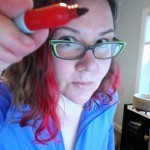Erik Darling and Kendra Little Talk AI, Databases, and SQL Server 2025
Erik Darling joins me on the Dear SQL DBA Podcast to chat about AI tools, why they work better for Python and PowerShell than SQL, and what’s …
Read MoreI love writing presentations. I like outlining them, I like writing the demos, putting the slides together. I even like reconsidering everything, backing up, scrapping it, and starting from a new approach!
But I hate writing abstracts. It’s just tough to capture your vision in the format a conference organizer wants. And often, if I’m writing the abstract before the presentation is done, I’m wary about possibly describing something that I’ll want to change later.

Staring at a blank piece of paper (or a blank sheet in the Mou Markdown editor, in my case), is the toughest part. As I was writing my abstracts, I realized that I’ve developed a formula that gets me immediately past that blank paper and into the abstract.
The biggest part of the secret is that I don’t write the title or the first sentence of the abstract first. For whatever reason, that’s incredibly hard.
Step 8 is incredibly valuable, no matter where you are in the process. Try to get feedback from a variety of people, including some who have spoken at the conference(s) you’re planning to submit to. They can help guide you about style and advice specific to those events.
Your abstracts may not be accepted the first time you submit. That doesn’t mean they are bad abstracts. It just means you weren’t selected that time.
The most important thing is to not take it personally. Sure, tweak your abstract and session the next time you submit. But this is just because it’s always best to make sure the abstract fits what you’re doing at that point in time and is fresh and relevant to you.
Every conference is an opportunity to share and teach. Have fun rising to it!
Copyright (c) 2025, Catalyze SQL, LLC; all rights reserved. Opinions expressed on this site are solely those of Kendra Little of Catalyze SQL, LLC. Content policy: Short excerpts of blog posts (3 sentences) may be republished, but longer excerpts and artwork cannot be shared without explicit permission.